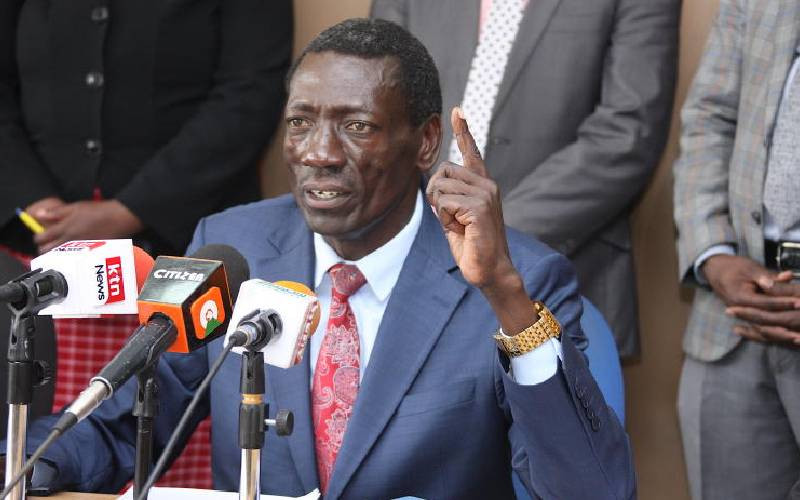×
The Standard e-Paper
Stay Informed, Even Offline

KNUT Secretary General Collins Oyuu speaking during a press briefing where they are asking for teachers comprehensive medical scheme November 15 2022. [Wilberforce Okwiri, Standard]
The idea of having comprehensive medical cover for teachers wasn't a bad one. Before, teachers had been exposed to embarrassing situations every time they fell sick.